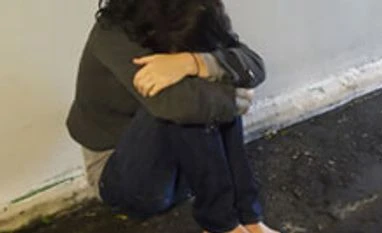At a time when the country is fixated over the issue of minors getting away with lesser punishment in rape cases, a Delhi court interpretation of consensual sex in the case of a minor girl has set off another intense debate.
The court observed that a crime can’t be constituted, if the minor has consented for sexual relationship. This is likely to open a can of worms and will have devastating impact on the Indian society, feels civil and child right activists.
“The judges are not sensitized enough. This observation has opened a room for negotiations between the victims and accused.
“Even the police will deter from registering First Information Reports (FIRs) in rape cases. It will only encourage the accused. In future, there will be instances when accused would be abandoning victims after their marriage of two-three years,” he added.
Additional Sessions Judge Dharmesh Sharma has observed that a crime cannot be constituted under the Protection of Children and Sexual Offences (POCSO) Act 2012 – if a physical relationship, which is not in the nature of assault, takes places with the consent of minor girl and the consent is not obtained unlawfully.
The court set aside the plea of Delhi Police and Delhi Commission for Women that prohibits minors of having sexual relationship, Times of India reported on Monday.
“I am afraid if that interpretation is allowed, it would mean that the human body of every individual under 18 years is the property of the state and no individual below 18 years can be allowed to have pleasures associated with one's body,” he court observed.
Until now, criminal charges were pressed against an accused, irrespective of minor’s consent. India has the largest number of child population and it is estimated that 42% children are below the age of 18 years. The statistics suggests that sexual crime against children is on the rise.
“This will have a serious impact. On the contrary, the onus of proving rape will be on the victim. The traffickers bring children in the lure of employment and marriage. They rape and abandon them,” said V K Tikko, member of the National Commission for Protection of Child Rights (NCPCR).
“We are analyzing the court observations and if it appeared radical, we will move to the Delhi High Court,” he added.
The activists believe that accused will buy consent of rape accused. “The women will give in to much social pressure. Chances are that defence and public prosecutor will negotiate secret deals. This will set a bad precedent,” Rishikant said.
Former Delhi High Court Justice (retired) R S Sodi said if a victim is minor, then it is a rape.
“High Courts and Supreme Court are court of records. Only their ruling becomes a law. The lower court observations cannot set a precedent,” he said.
The court observed that a crime can’t be constituted, if the minor has consented for sexual relationship. This is likely to open a can of worms and will have devastating impact on the Indian society, feels civil and child right activists.
“The judges are not sensitized enough. This observation has opened a room for negotiations between the victims and accused.
More From This Section
The defence attorney would try to lure the victim with monetary and other compensations and as a result the accused will go scot free,” Rishikant, an-award winning activist, alleged.
“Even the police will deter from registering First Information Reports (FIRs) in rape cases. It will only encourage the accused. In future, there will be instances when accused would be abandoning victims after their marriage of two-three years,” he added.
Additional Sessions Judge Dharmesh Sharma has observed that a crime cannot be constituted under the Protection of Children and Sexual Offences (POCSO) Act 2012 – if a physical relationship, which is not in the nature of assault, takes places with the consent of minor girl and the consent is not obtained unlawfully.
The court set aside the plea of Delhi Police and Delhi Commission for Women that prohibits minors of having sexual relationship, Times of India reported on Monday.
“I am afraid if that interpretation is allowed, it would mean that the human body of every individual under 18 years is the property of the state and no individual below 18 years can be allowed to have pleasures associated with one's body,” he court observed.
Until now, criminal charges were pressed against an accused, irrespective of minor’s consent. India has the largest number of child population and it is estimated that 42% children are below the age of 18 years. The statistics suggests that sexual crime against children is on the rise.
“This will have a serious impact. On the contrary, the onus of proving rape will be on the victim. The traffickers bring children in the lure of employment and marriage. They rape and abandon them,” said V K Tikko, member of the National Commission for Protection of Child Rights (NCPCR).
“We are analyzing the court observations and if it appeared radical, we will move to the Delhi High Court,” he added.
The activists believe that accused will buy consent of rape accused. “The women will give in to much social pressure. Chances are that defence and public prosecutor will negotiate secret deals. This will set a bad precedent,” Rishikant said.
Former Delhi High Court Justice (retired) R S Sodi said if a victim is minor, then it is a rape.
“High Courts and Supreme Court are court of records. Only their ruling becomes a law. The lower court observations cannot set a precedent,” he said.
)